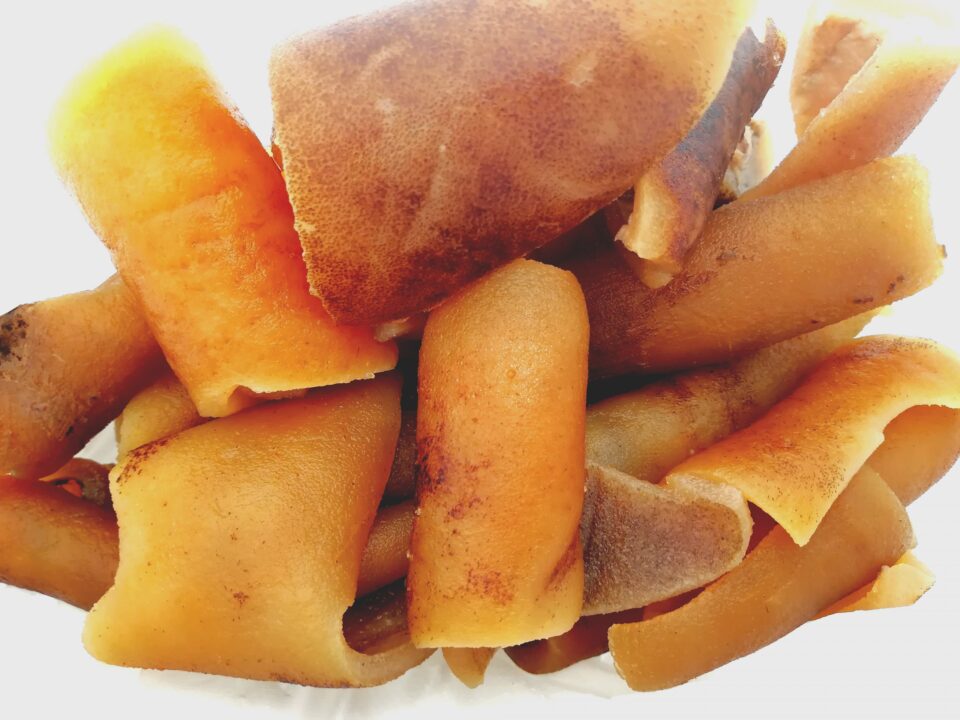Cow skin (Kpomo) production entails a meticulous process of transforming raw cowhide into the tender delicacy consumed by many, especially Nigerians. Kpomo, known to some as cowhide or cow skin, is produced through a series of steps.
The process begins with obtaining cow skin from abattoirs, where it undergoes rigorous cleaning and preparation. The cow skin is soaked in a solution of water and caustic soda for several days to soften it, followed by thorough washing and boiling until it becomes tender. This careful processing ensures the removal of impurities and achieves the desired texture and flavor characteristic of Kpomo.
The demand for Kpomo in Nigeria and Africa is very high due to its widespread popularity as a staple ingredient in traditional cuisines. Kpomo is used to prepare a variety of dishes, including soups, stews, and sauces, as it adds a unique texture to food.
Revenue Streams in the Kpomo Business:
1. Export Business: The export market opens doors to international opportunities, allowing entrepreneurs to sell cow skin products to other African countries and beyond. Exporting Kpomo can serve as a significant source of foreign exchange earnings, contributing to economic growth and sustainability.
2. Integrated Livestock Farming: Integrating cow skin production with livestock farming provides a continuous source of hides and skins, essential raw materials for Kpomo processing. This ensures a steady supply chain while diversifying revenue streams through livestock sales and Kpomo production.
3. Leather Production: Cow skin serves as a primary raw material for leather production. This gives entrepreneurs the opportunity to establish leather production factories. By processing cow hides into leather products, such as shoes, bags, and accessories, businesses can cater to diverse consumer markets and maximize profits.
4. Fertilizer Production: Processing cow skin into fertilizer capitalizes on its nutrient-rich composition, containing nitrogen, phosphorus, and potassium. This will help address agricultural needs, supplying farmers with organic fertilizers while generating revenue from fertilizer sales and distribution.
5. Wholesale and Retail Businesses: Operating Kpomo wholesale and retail businesses cater to different market segments, supplying bulk cow skin products to retailers and directly selling to consumers.
6. Kpomo Packaging Business: Offering Kpomo packaging services caters to the packaging needs of Kpomo processors and distributors. By providing quality packaging solutions, entrepreneurs contribute to product branding and differentiation, driving sales and customer satisfaction.
7. Distribution Business: This involves transporting and delivering cow skin products to retailers and consumers efficiently. Distribution ventures optimize logistics and supply chain management, ensuring timely product delivery and customer satisfaction.
To maximize profit in the Kpomo business, entrepreneurs must make the best use of market opportunities. This involves innovation and continuous adaptation to consumer preferences.

